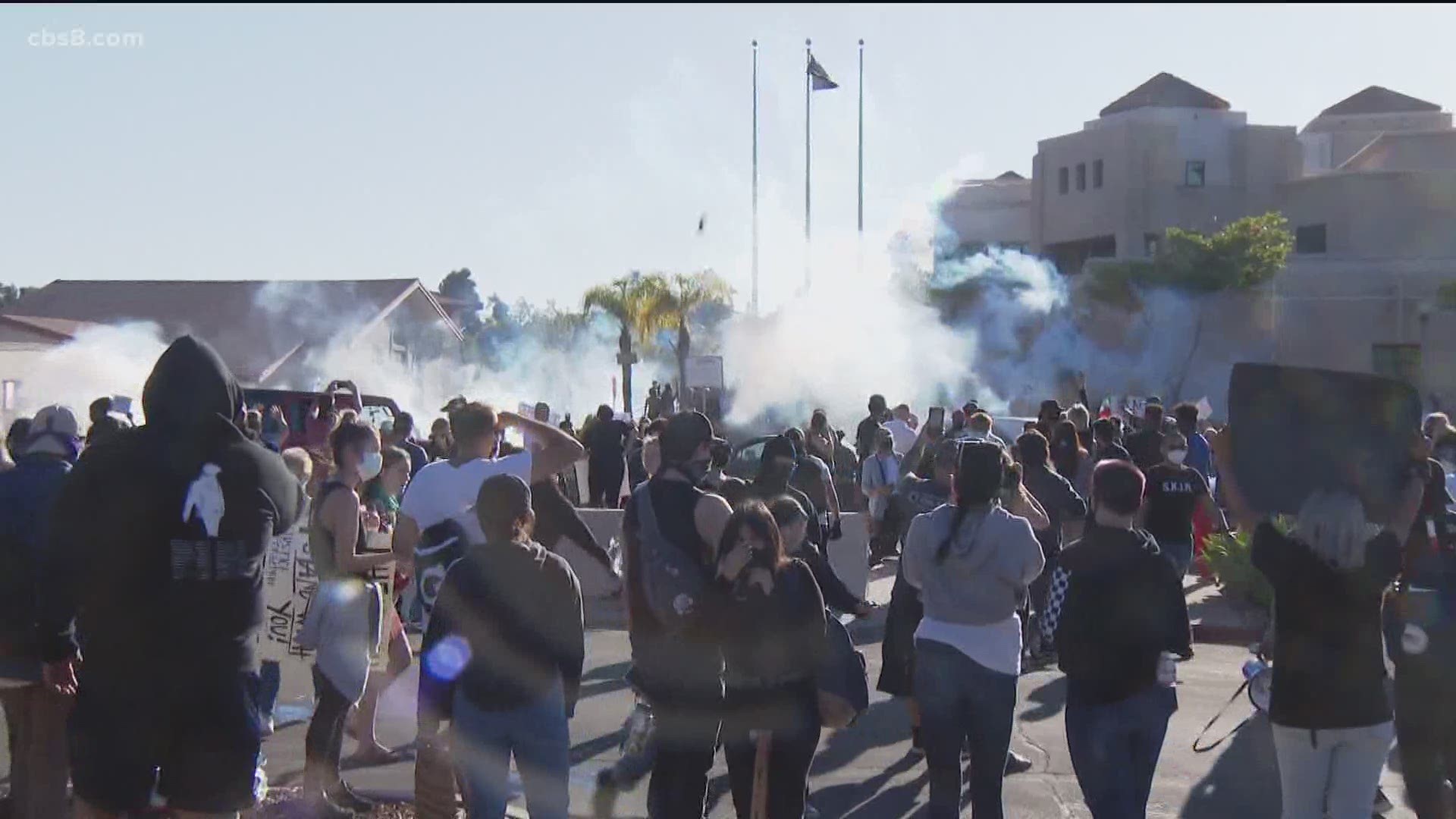SAN DIEGO COUNTY, Calif. — After days of protests, and intense media coverage, some parents may be wondering how to talk to their kids about racism and what's going on in the world.
Whether it's in person, or on your TV or phone screens, images of destruction and chaos are popping up everywhere. That means many kids are asking questions.
For some families, it’s taken an emotional toll.
"It's tough," said Angie Henderson.
The past few days have been challenging for Angie and her family. They live in La Mesa, just down the street from where looting broke out Saturday night.
"Because we're right there, they were thinking, 'how long is it gonna take them to get on our street?'" Angie said.
"Everything was scary at once," one of her kids said.
"My dad came in my room and he asked me 'what's your opinion on everything going on like the protest stuff?'" another of Angie's daughters said.
Aside from talking to her kids, ages 12,14, and 17, about what's going on, she's also showing them.
"You can tell them all day long but until they see it for themselves, they're really not gonna understand anything," Angie said.
"I think it is very important because kids need to learn at an early age," Angie’s daughter said.
Kaiser Permanente Pediatric Psychiatrist Dr. Natasha Cortes said while it's important to discuss these issues with your kids, make sure you're taking care of yourself first.
"Children are like sponges. They often mirror and reflect how they see parents reacting to news or stressful times in general," said Dr. Cortes.
Keep in mind, kids are growing up during a time when information and visuals are so easy to get.
Dr. Cortes advises parents to monitor kids' screen time to ensure what they're seeing is both accurate and appropriate. She said to ask them what they already know and would like to know more about. And be aware of what you're teaching them.
For younger kids, consider reading a book about cultural differences.
"Encouraging respect is one thing children start to develop early on and they can even utilize that skill in the playground when they're around other family members and you can practice that even at home," Dr. Cortes said.
For older kids, if they seem interested in a particular cause, encourage them to get involved.
Also, look for signs of anxiety or depression like a change in sleep pattern or tantrums.
Finally, reassure your kids.
"Even statements like, 'I know you're scared,' 'it's OK to be afraid,' 'yes, it worries me too but know I am looking after you,'" said Dr. Cortes.
In Angie Henderson's case, she's doing her best, and based on her 14-year-old's response to racism, it's working.
"They're just like us, they're people so they should feel love no matter what," she said.
If talking to your own kids isn’t enough, the psychiatrist News spoke with suggested reaching out to an expert for help.

